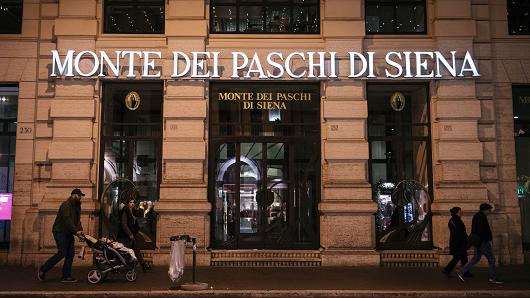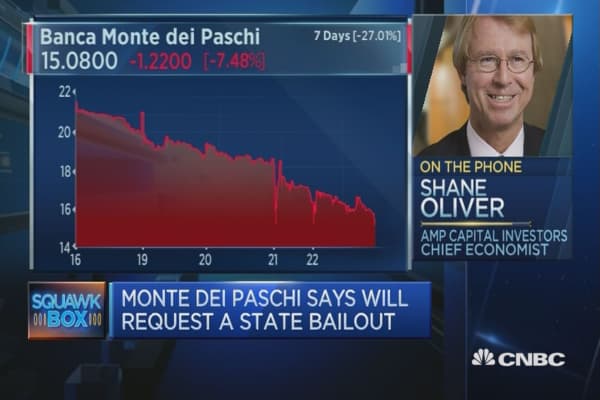Italy’s government approved a state bailout for Monte dei Paschi di Siena on Friday, after the world’s oldest bank failed to secure backing from private investors.
Prime Minister Paolo Gentiloni and his cabinet paved the way for a 20 billion euro ($20.8 billion) rescue fund to help the country’s embattled banking sector, with BMPS, Italy’s third largest bank, the priority.
The troubled lender issued a statement shortly after Italy’s parliament finished meeting and declared it would formally request a state bailout in an effort to stay afloat.
“This will secure the capital needs of BMPS and allow the bank to pursue its industrial plan,” Pier Carlo Padoan, Italy’s finance minister, said in a brief press conference.
“Italy’s third-largest bank will finally return with force to operate in support of the Italian economy and in a context of full tranquility for its savers and its employees,” he added.
DESPERATE TIMES
Monte dei Paschi’s desperate need for state aid followed an unsuccessful attempt to raise enough capital through private investment. The bank, which has been saddled with non-performing loans, raised 2.5 billion euros from retail and institutional investors, however, was well short of the 5 billion euros required by Thursday afternoon.
BMPS’ shares were suspended from trading ahead of the European open on Friday after falling to its lowest share price in the previous session.
The European Central Bank (ECB) had previously rejected a request for BMPS to have its deadline to raise sufficient funds extended to January 20 in early December.
Monte dei Paschi was found to be the weakest of 51 European banks that went through the ECB’s stress testing earlier in the year and was given until the end of 2016 to resolve its dire situation or face being wound down.
“Italy is really rather depressing to look at,” Paul Donovan, global chief economist at UBS Wealth Management told CNBC on Friday.
“(In Italy, we have) negative bank lending… In a modern capitalist society, if you don’t have normal bank lending you don’t have normal economic growth, it’s that simple,” he added.
DESPERATE MEASURES
Under new European Union (EU) regulations, any such state bailout would enforce a conversion of the lender’s junior bonds into shares while risking losses for thousands of ordinary retail investors.
The EU rules were designed to prevent tax payers having to fork out the majority of the support required for an ailing bank.
Italy’s debt levels are second only to Greece in the euro zone standing at 133 percent of gross domestic product (GDP) and should all 20 billion euros be swallowed up by the fragile banking system, the debt levels are projected to climb even higher, according to a Reuters report.






